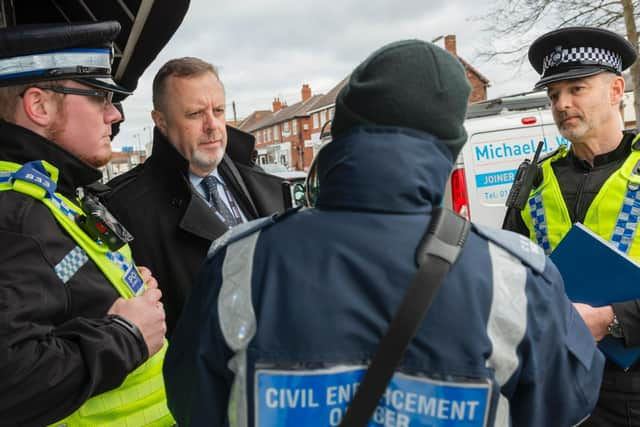Police will have a crucial role in tackling inequality in aftermath of coronavirus
and live on Freeview channel 276
In the last of a series of exclusive interviews with the Yorkshire Evening Post, West Yorkshire Police and Crime Commissioner, Mark Burns-Williamson says why policing and tackling crime are central to taking the region forward as lockdown lifts and a new way of normal emerges.
After years of debate and campaigning, the leaders of the five West Yorkshire councils agreed a devolution deal with Government earlier this year, which will see transfer of powers and investment from Whitehall to the region - along with a budget at least £1.8bn.
Advertisement
Hide AdAdvertisement
Hide AdThe deal means decisions across key areas, such as transport, skills, the economy, housing and regeneration will be taken in West Yorkshire by people who know and understand the region and the issues it needs to prioritise.


However, the process has been halted by coronavirus with elections for a mayor to head the devolution being delayed until 2021 - but ironically it is now that the benefits of this deal are needed more than ever, he says.
An open supporter of devolution he says it needs to be done properly and that accountability and governance of police are especially important in light of recent events in America.
From a policing point of view, Mr Burns-Williamson suggests that tackling some crime issues can in turn address other problems, but fears the country will be subject to another long wave of austerity to compensate for the emergency coronavirus spend the government has had to undertake.
Advertisement
Hide AdAdvertisement
Hide AdHe said: "The concensus of the mayor model is more integration. I have said that the police have an important role, that some of the big issues that we face will require a massive partnership approach, particularly post COVID when jobs will have gone, unemployment rates go up - there will be a whole systematic approach that will need to be put in place.
"We know that people who go into prison don't get rehabilitation - how can we put in more effective programmes to break that cycle? Some of the key issues are access to accommodation, employment and dealing with alcohol and substance misuse and mental health issues."
There have been successful examples of this following a hurried process to house homeless people in Leeds in hotels and accommodation that otherwise couldn't trade as usual. It was a move that got people off the streets and in touch with outreach workers who can help vulnerable people get access to medical and housing assistance which they were not getting before.
Mr Burns-Williamson added: "During COVID we have seen examples of local authorities doing great work in getting homeless off the streets but how is that going to be sustained moving forwards. Are the funds and resources going to stay in place to support that? There are some worries regarding the level of funding that will be required to fully come out of this and the LA and the police are going to be affected by that.
Advertisement
Hide AdAdvertisement
Hide Ad"The budget that I stated in February will have to be totally re-assessed. The government are going to need to set out a strategy. I hope they don't revert back to the last ten years and blanket austerity. That puts us in a bad place to start with."